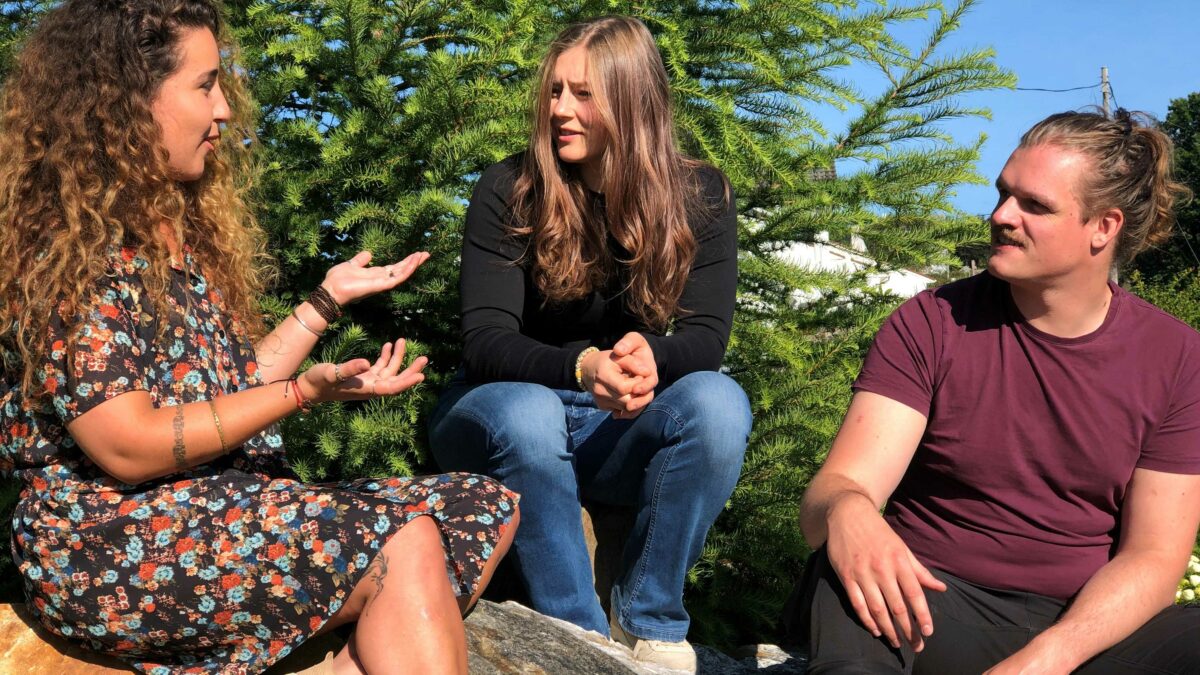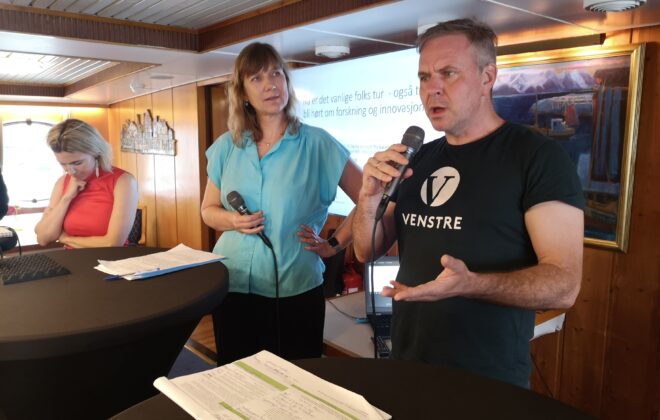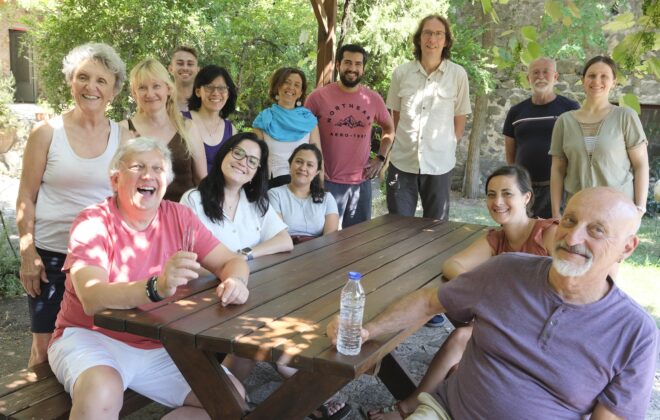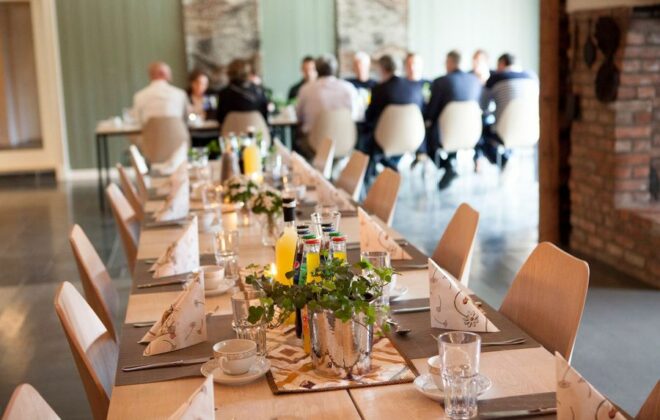Nurturing a vibrant RRI community
21 participants. 11 different institutions. A beautiful location. And a whole week to explore how to apply responsible research and innovation (RRI) in their work.
– I am very new to RRI, and that is part of the reason why I wanted to join the summer school. It gives me insight on how to communicate my research, says Madeleine Gundersen.
– Everybody is starved for social contact. That is a good start. But also, we are here for various reasons. During our time here, we are finding a lot of common ground, irrespective of differences in background and research interests, says Emil Karlsen.
– I am a critic of neutrality in science and research, so I believe that when we add this idea of taking responsibility and doing responsible research, you are actually thinking about what is best for the society. I have like a political view on this – what kind of future are we co-creating here, asks Alice Demattos Guimarães.
All three are PhD candidates, – Madeleine and Emil at NTNU and Alice at Western Norway University of Applied Sciences. They all attended the first AFINO summer school, where transdisciplinary RRI was the main theme.
Shaped as a retreat
To create the right atmosphere, a scenic and calming location helps. The idyllic surroundings in Bekkjarvik at Austevoll and the accommodation at beautiful Bekkjarvik Gjestgiveri in the harbour, provided an ideal setting for the summer school.
Leader of the AFINO research school, Anne Blanchard, explains her intensions by placing the summer school there.
A job for the institusions!
Roger Strand from Centre for the Study of the Sciences and the Humanities (SVT) at the University of Bergen (UiB) and the Centre for Digital Life Norway (DLN) and Arnt Fløysand from Western Norway University of Applied Sciences (HVL) were among the teaching team at the summer school.
– The lecture worked surprisingly well. And that is thanks to the students, not because of me. It is impressive how good it worked because they are such a diverse group. The approach on RRI binds them together across disciplines, Fløysand said after his lecture.
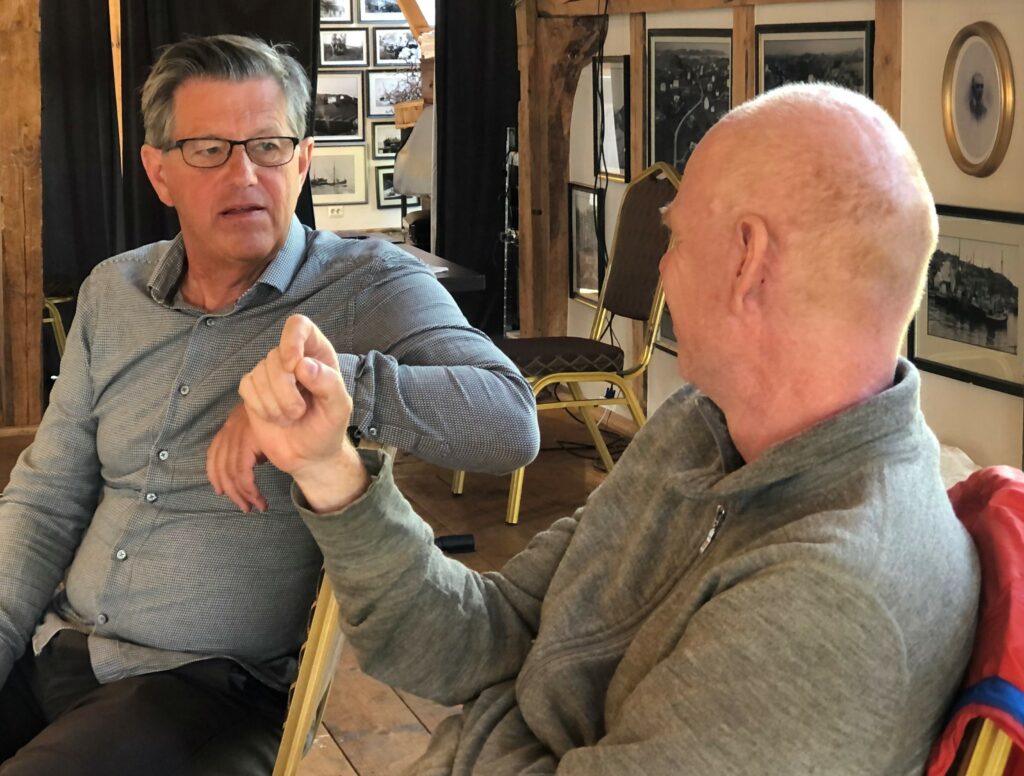
At the same time, the HVL professor points out that focus and training in responsible research and innovation should not only be a requirement for actors such as AFINO and DLN, but it should be more integrated in the educational institutions.
– The students welcome this. They are concerned about responsibility and sustainability. I believe it is important for the institutions to address this, he says.
Roger Strand adds:
– It is a paradox that it is the Research Council that keeps alive most educational offers and courses within RRI in Norway today. Principals at universities have only to a small extent integrated this into their educational curricula. Yet, students today are concerned with sustainability challenges. They are not one-eyed, he says.
Creative week
During the week in Bekkjarvik the participants were organized in transdisciplinary groups and given assignments in RRI challenges. On the last day, the groups presented the result of their work for the other participants and the teaching team – in a freely chosen form.
The results showed that the creativity was high – one group delivered their RRI challenge as, what they called, a “evaluation method poster”.
– It really finished on a high, and the presentation from the participants were fantastic, reports AFINO research school organizer Anne Blanchard, a couple of days after the end of the summer school.
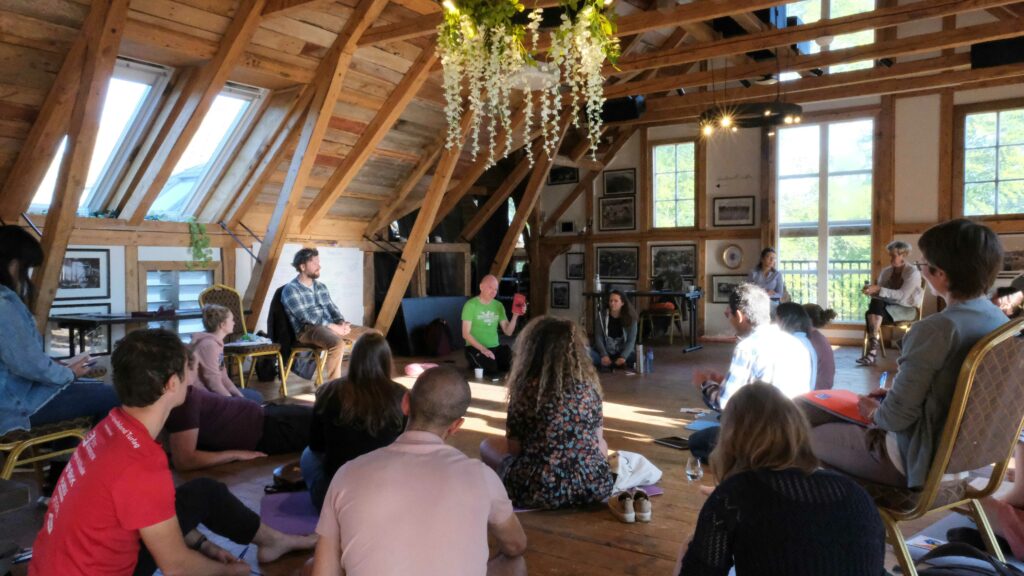
Great experience
The set up on the first ever AFINO summer school turned out to be a winning recipe for the participants as well. The PhDs from NTNU, Emil Karlsen and Madeleine Gundersen, highlights the opportunity to meet researchers from other disciplines.
– It is a great experience to meet people from diverse backgrounds to find a common ground. And it is really interesting to talk to people with different mindsets, they say.
The organizers of the first AFINO summer school can be very pleased of comments like that of Alice Demattos Guimarães, from HVL.
– I think the highlight of the summer school is just to listen and to be here. Everyone contributes collectively to a safe space where we exchange, discuss and listen. Everyone is so engaged, and it is beautiful to be a part of a research community that is capable of that, she says.
All photos/video: Eva Hilde Murvold

